Yaounde, Cameroon – In an era where global institutions are expected to uphold neutrality, promote justice, and stand with the oppressed, the United Nations Development Programme (UNDP) has chosen a different path in the Southern Cameroons. It has opted for complicity over conscience, convenience over credibility. What should have been a development partner has instead become a key player in a propaganda machine that seeks to erase a conflict without resolving it.
On May 5, 2020, amid a still-raging armed conflict in the Southern Cameroons—now widely known as Ambazonia—the UNDP signed a financing agreement with the government of Cameroon to launch what they call the Presidential Plan for the Reconstruction and Development of the Northwest and Southwest Regions (PPRD-NW/SW). The agreement outlined a budget of nearly 90 billion CFA francs (approximately $151.8 million USD), with Yaoundé providing a nominal 10% and the remainder expected to be covered by development partners under UNDP coordination.
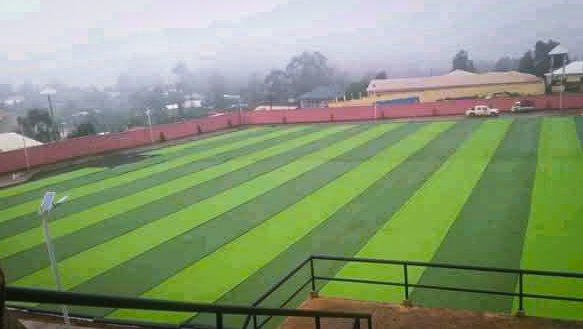
At first glance, this initiative was framed as a peace gesture, a blueprint for healing the war-torn communities. But behind the veil of noble intentions lies a disturbing truth: the UNDP’s involvement in this project is not only premature and ill-conceived—it is profoundly unethical.
The plan’s fatal flaw lies not just in its questionable timing—reconstruction efforts launched in the midst of an ongoing war—but in its total refusal to engage first and foremost with the root causes of the conflict. Nowhere in the PPRD documentation is there mention of the forced assimilation, political marginalization, or the constitutional violations that triggered the Ambazonian quest for self-determination. Nowhere is there acknowledgment of the indiscriminate killings, mass displacement, or destruction of entire communities by Cameroon’s own security forces.

Instead of confronting these hard truths, the UNDP chose to align itself with a government whose legitimacy in the Southern Cameroons has completely collapsed. In doing so, the UNDP has not only betrayed the people it claims to serve but has undermined any prospects for genuine dialogue or sustainable peace.
The clearest example of this betrayal can be found in Bamenda, where the UNDP, under the PPRD, recently completed what it claims is a major milestone: the construction of a football stadium. It was unveiled with fanfare during a recent visit by Dion Ngute, the Prime Minister, as a sign that “reconstruction” is underway.
But what stands in Bamenda today is not a stadium. As you can see in the photos, it’s an empty fence. It is a monument to corruption and international complicity.

The project’s total cost is reported at 1,024,599,200 CFA francs—approximately $1.74 million USD. The UNDP contributed a staggering $1.3 million of that amount, with the Cameroonian government and Bamenda I Council providing the remainder. And yet, what that money has produced defies logic and decency: a hastily, poorly fenced field with substandard synthetic turf, no public seating, no locker rooms, and shockingly, no field markings. The center circle, the goal areas—none are visibly demarcated. It is, by every measure, a disgrace.
This editorial board poses a simple but necessary question: Does this structure/fence remotely resemble a $1.7 million facility? And if it does not—and it clearly does not—then another question must follow: Is the UNDP perpetrating fraud and embezzlement under the guise of humanitarian development?
The absurdity deepens when one considers the justification: this was supposed to contribute to “revitalizing the local economy,” one of the PPRD’s three pillars. But how does a football field, barely functional and rarely used, contribute to economic growth in a city where roads are unpassable, markets are shuttered, and thousands still live in fear or displacement? How does it make sense to prioritize synthetic turf over the reconstruction of destroyed clinics, classrooms, businesses, and homes?
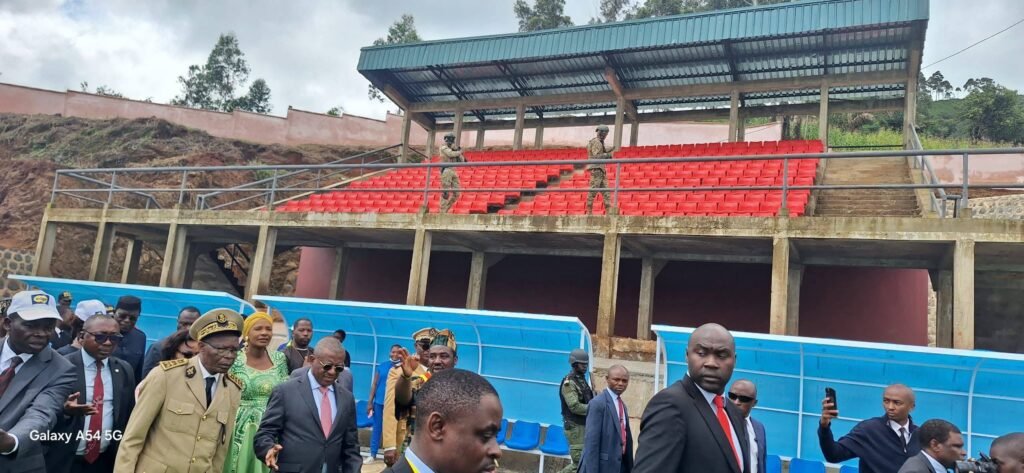
The conclusion is inescapable. The UNDP is not rebuilding Southern Cameroons; it is rebuilding the narrative of Yaounde, desperate to appear legitimate. UNDP’s role has shifted from neutral actor to active enabler, from facilitator of progress to apologist for a failing state. This is not development. It is deception.
Members of the regime, like Higher Education Minister Nalova Lyonga, have publicly expressed shock and indignation at the appalling state of Bamenda’s infrastructure. When even Yaoundé’s loyalists can no longer deny the rot, how can the UNDP justify pouring millions into empty, cosmetic projects? Imagine how many kilometers of these roads could be refurbished for $1.74 million in Bamenda?
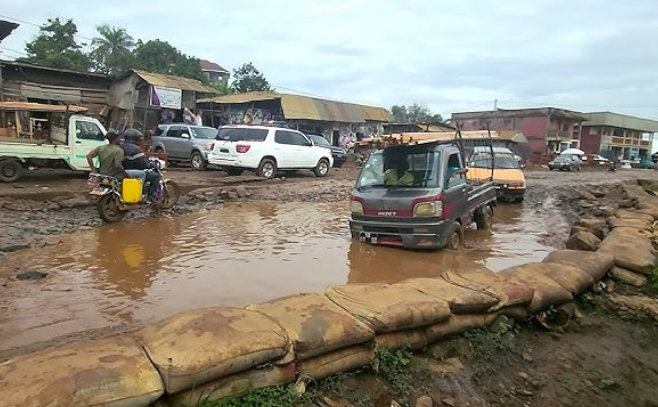
The actions of the UNDP in the Southern Cameroons represent not merely a policy miscalculation but an ethical collapse. The UNDP’s silence on the underlying injustice—on the state violence, the war crimes, the continued military occupation—makes it an accomplice, not a solution seeker. Its presence legitimizes the false narrative that peace has returned and reconstruction is on, even as the guns still fire and the prisons still fill.
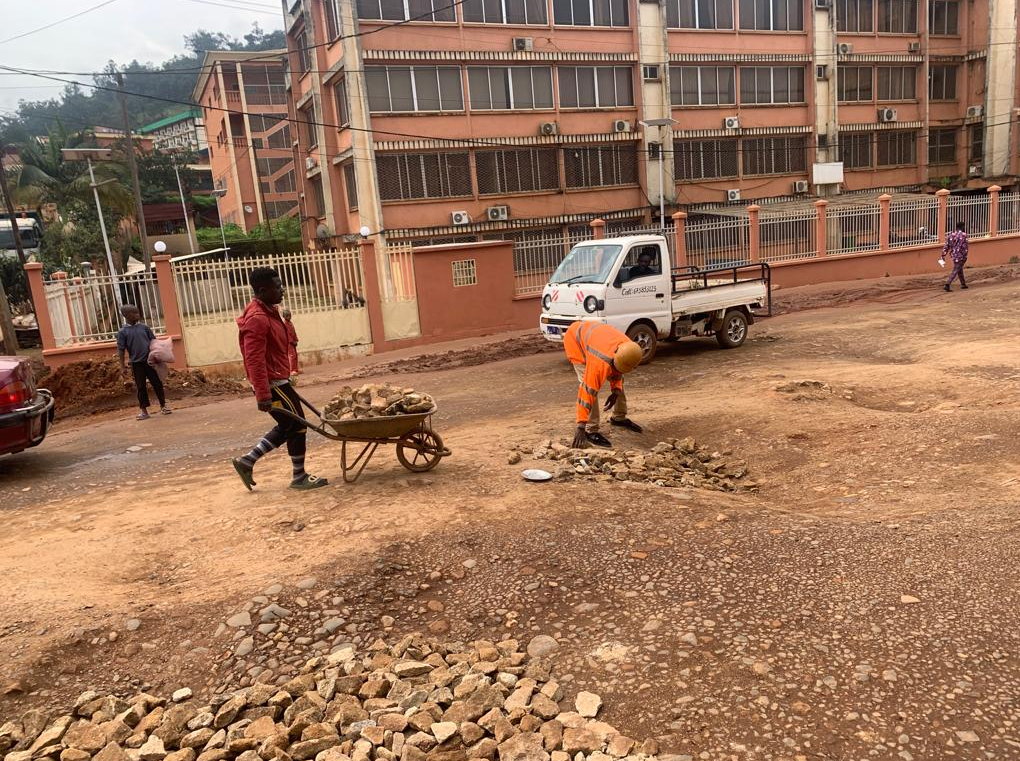
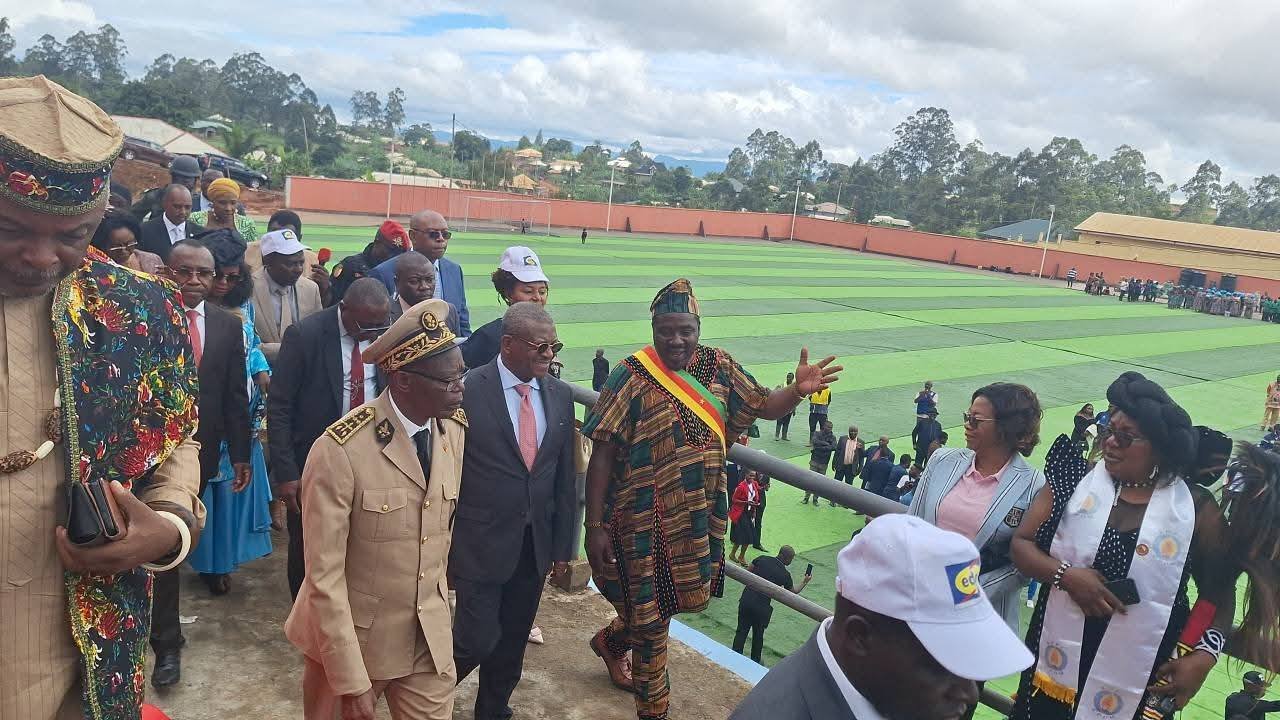
Let it be known: there can be no reconstruction without justice. There can be no peace without truth. And there can be no development while the people of Southern Cameroons are denied their right to self-determination.
For these reasons, the UNDP’s reconstruction program must be firmly rejected by every conscious Ambazonian. It is not a neutral initiative. It is a political tool disguised as humanitarian aid. It is a pipeline through which international money is siphoned to launder the crimes of the regime in Yaoundé. It is an insult to those who have lost their lives and a betrayal of those still fighting for a future free from domination and deceit.

